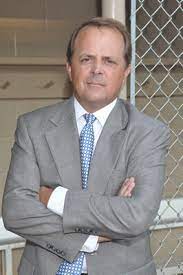Why Leadership Is Important
Posted by Mitch Mitchell on Dec 6, 2017
A few years ago I went to a convention where the focus was on health care finance; more specifically, people whose jobs are geared towards medical billing and revenue cycle. As usual, the seminars were fairly interesting, but one keynote presentation really brought everything home. It was intriguing because of the major question we all have to answer; what happens when good intentions go awry and suddenly the focus is on the almighty dollar for personal gain?
 |
Our keynote speaker on the second day was Weston Smith. For those outside of health care or the world of investing, he was the CFO of HealthSouth, a mega health care system that, for awhile, was the darling of both industries for the care they provided and the money they could generate.
That is, until Smith got a conscience and blew the whistle on his own company by admitting to cooking the books and reporting false revenue figures at the direction of company CEO Richard Scrushy. It was a great presentation and one that possibly some folks in that room needed to hear. That Scrushy got off and Smith got 27 years for finally coming clean is as interesting a tale as the fact that 2 years later Scrushy ended up in prison (sort of) for something else. But that's not really the story here.
The real story is that Smith could have gotten off the boat at any time before making any of the mistakes he did. He told parts of that story in his presentation. He also told about the manipulation of the accounting firm that should have known better.
What he didn't talk about was the manipulation of the people who reported to him, all of whom had to have helped him create a second and third set of books and thus were in jeopardy of going to jail themselves. He didn't tell us if he pressured them as much as he was being pressured or if they just did as they were told. Normally, in the eyes of the law those folks would be judged as guilty as he was; we don't know if anything happened to them.
Most of the time, the consequences of fraud show a major corruption of both leadership principles and ethics. While Smith admitted his guilt as a party to a crime, he never acknowledged his failure as a leader of his employees. Knowing better and still doing wrong doesn't come close to anything bordering good leadership.
Here's the thing. If it's not about anyone else, especially the employees who work for you, it's not leadership, let alone good leadership. If a leaders focus is actually on those people, it's hard to even consider doing anything unethical, especially risking the lives and careers of others.
In the end Smith did the right thing. But the company took a big hit, and then almost folded. Every employee of the company, especially those on the financial end, took big hits to their credibility. Many probably had trouble getting new jobs even if they had nothing to do with Smith's department; I know that happened with the Arthur Anderson fiasco. When leadership fails badly, collateral damage is extreme.
That's why leadership is important and leadership skills should be honed. It doesn't make people do the right thing; it teaches them that nothing else matters. Who wouldn't want to work with a leader they know will only do right and right by them?

